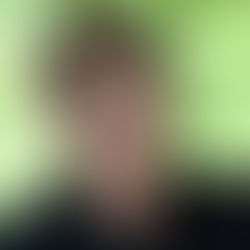"IN A RELATIONSHIP WITH THE SKY" : AN INTERVIEW WITH THE LAST SONGBIRD'S DANIEL WEIZMANN
- wildremuda
- Jun 2, 2023
- 3 min read

The last songbird is my favorite debut novel so far. A moody, L.A. noir that carries the city's twilight even during the light of day as an Lyft driver, Addy, looks into the murder of one of his regular clients, the once famous singer songwriter Annie Linden. I caught up to the book's author, Daniel Weizmann, for a few questions.
Scott Montgomery : How did the idea for The Last Songbird develop?
Daniel Weizmann : There's a liquor store on Yucca about a block north of Hollywood Boulevard--PLA-BOY Liquor (the missing Y is a neon martini.) Anyway, there was a pizza joint I used to go to as a teenager in that same mini-mall, a very dark little spot, unsafe for the young. One time, listening to the Elton song "Mama Can't Buy You Love," I had a crazy vision--nighttime, a rockstar pulling into that mini-mall in a limo, while a couple of wayward rock kids looked on, awestruck. Something about that vision put the squeeze on my heart. I had to find out why.
S.M. : How did Addy's profession as a Lyft driver come about?
D.W. : I've always been fascinated by limo drivers, jitney jockeys, taxi drivers, everybody in that role. Way back when I had friends who ushered at the Greek Theatre -- if they couldn't sneak you into a show, you'd go party with the limo drivers idling out front, the coolest cats in town. They seemed to see it all from such a funny vantage point--the capricious truth of city life.
S.M. : Annie Linden is a great murder victim with all of her history. How did you go about constructing her?
D.W. : I'm not sure. I guess she started as a feeling...about certain powerful women--not just singers, but others too, women who have an uncompromising relationship with the truth. By wrestling with the feeling, her story kind of pieced itself together -- because a woman like that can't help but draw certain people to her, it's in the nature of her magnetic force.
S.M. : L.A. is an often used setting for noir, but you have a fresh take and as a former resident I felt it. . What did you want to express about the city?
D.W. : Something about the place ignites a lot of questions for me -- about attachment, connection, feeling or not feeling the ground under your feet. Los Angeles can have an untethered, exposing quality that can be very frightening if you're lost. You know, the basin slopes at a not very perceptible angle, so that you're always in a relationship with the sky. It's like--whether you like it or not, the cosmos is all up in your grill.
S.M. : This being your debut, did you draw from any influences?
D.W. : Oh heck yeah -- too many to count! I grew up on Chandler, Seymour Krim, Benya Krik, Dickens, Iceberg Slim, so many greats. Plus old-time radio shows like The Saint, and TV shows, Rockford Files, Darren McGavin in The Outsider. But in the most fundamental way, I aim to be or aspire to be a student of Ross Macdonald...of the way he practices empathy.

S.M. : I bought all of the song lyrics written by the characters you have throughout the book. How did you deal with that challenge or is songwriting something you have an aptitude for?
D.W. : I did study songwriting years ago with the late, great Henry Gaffney, He said something magnificent: "All music is folk music, it just depends which folks you're singing to." But when I was trying to be good, I wrote some terrible songs. With Zantz, I had greater freedom because he says outright that he knows he isn't very good, he just can't help it. The freedom to write a bad song is a wonderful thing!









Fiwfan คือแอปหาคู่ออนไลน์ที่ช่วยให้คุณพบเจอคนพิเศษได้ง่ายขึ้น ไม่ว่าจะมองหาความรักหรือแค่ใครสักคนไว้พูดคุยคลายเหงา
หากคุณอยู่ย่านรังสิตและกำลังมองหาคนที่เข้าใจ ลองคลิกที่นี่ 👉 ไซไล รังสิต-fiwfan เพื่อค้นหาโปรไฟล์น่าสนใจใกล้ตัวคุณ ความสัมพันธ์ใหม่อาจอยู่แค่ปลายนิ้ว ดาวน์โหลด Fiwfan แล้วเริ่มต้นวันนี้เลย!